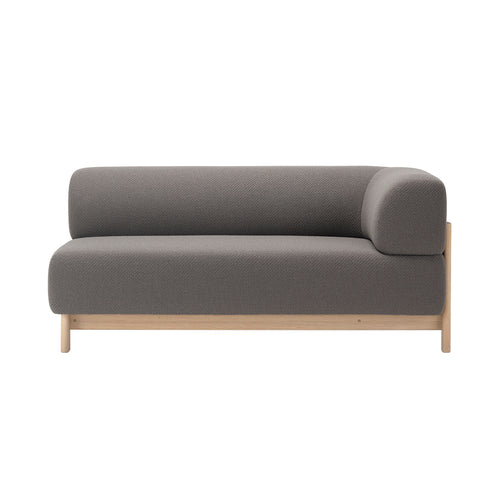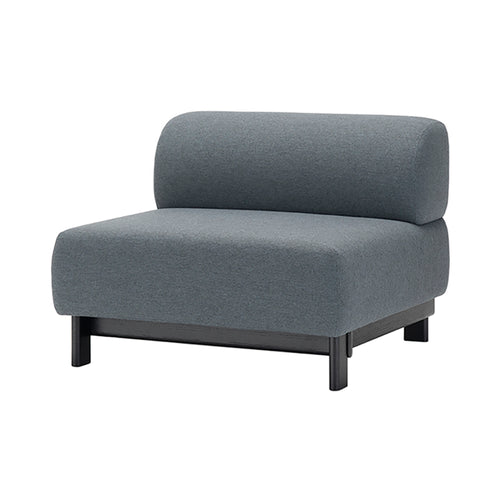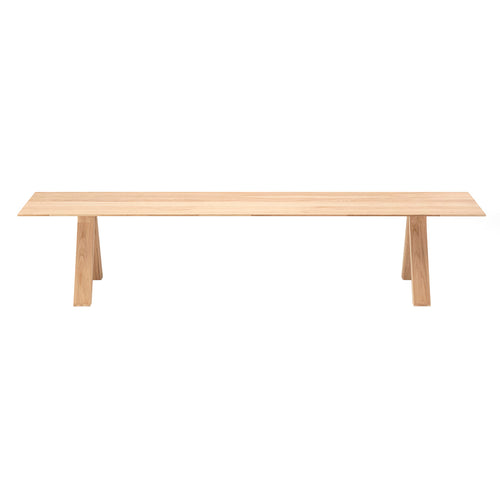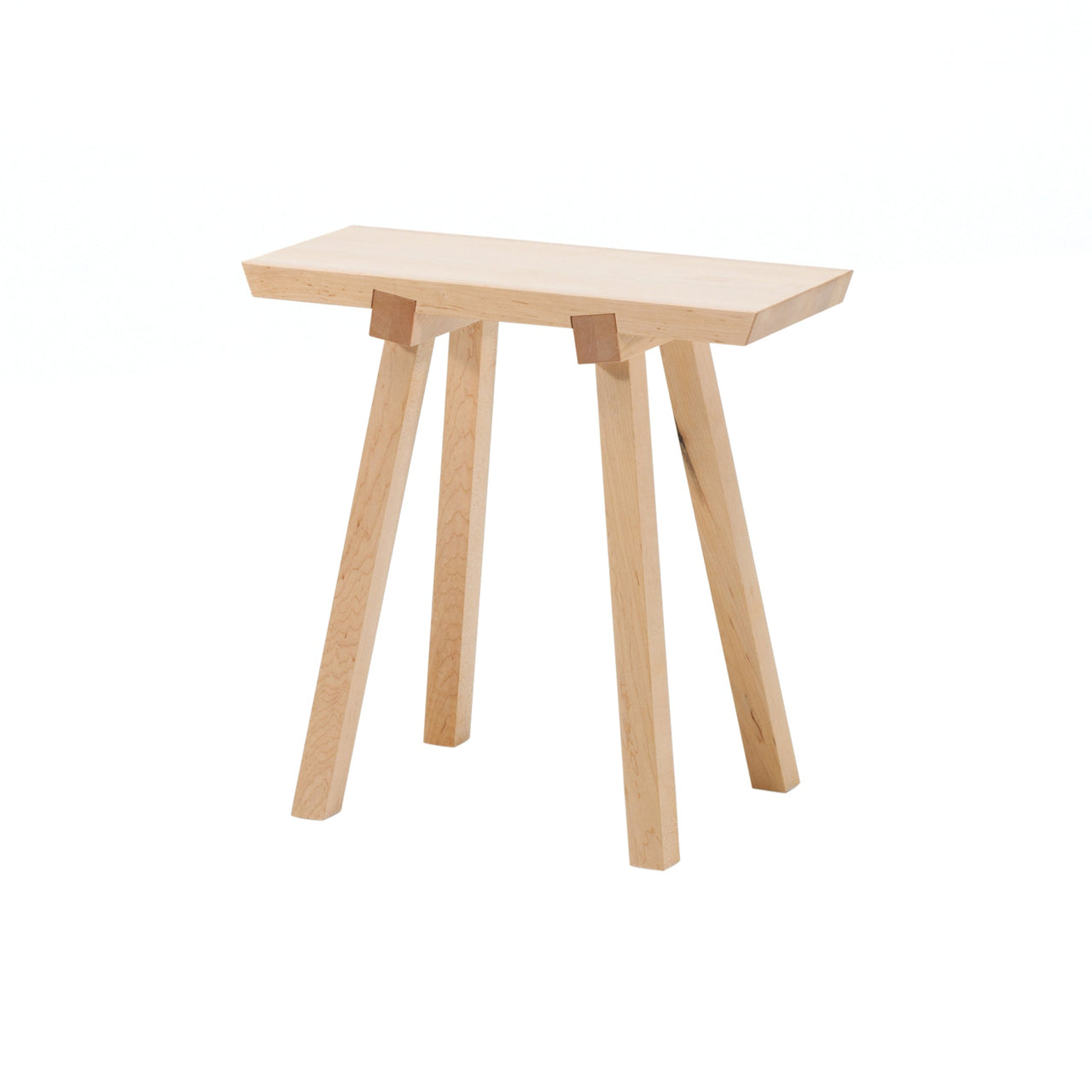
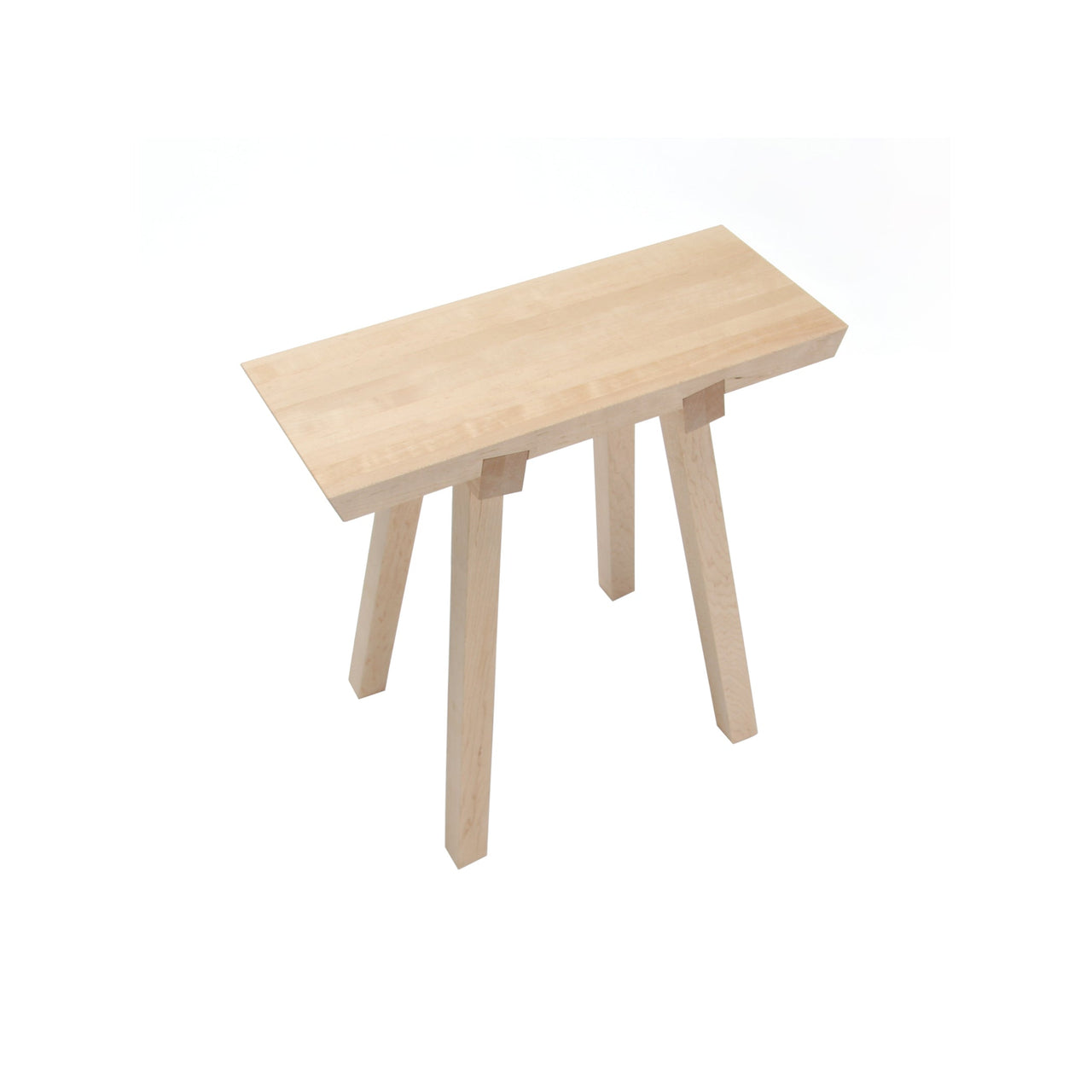
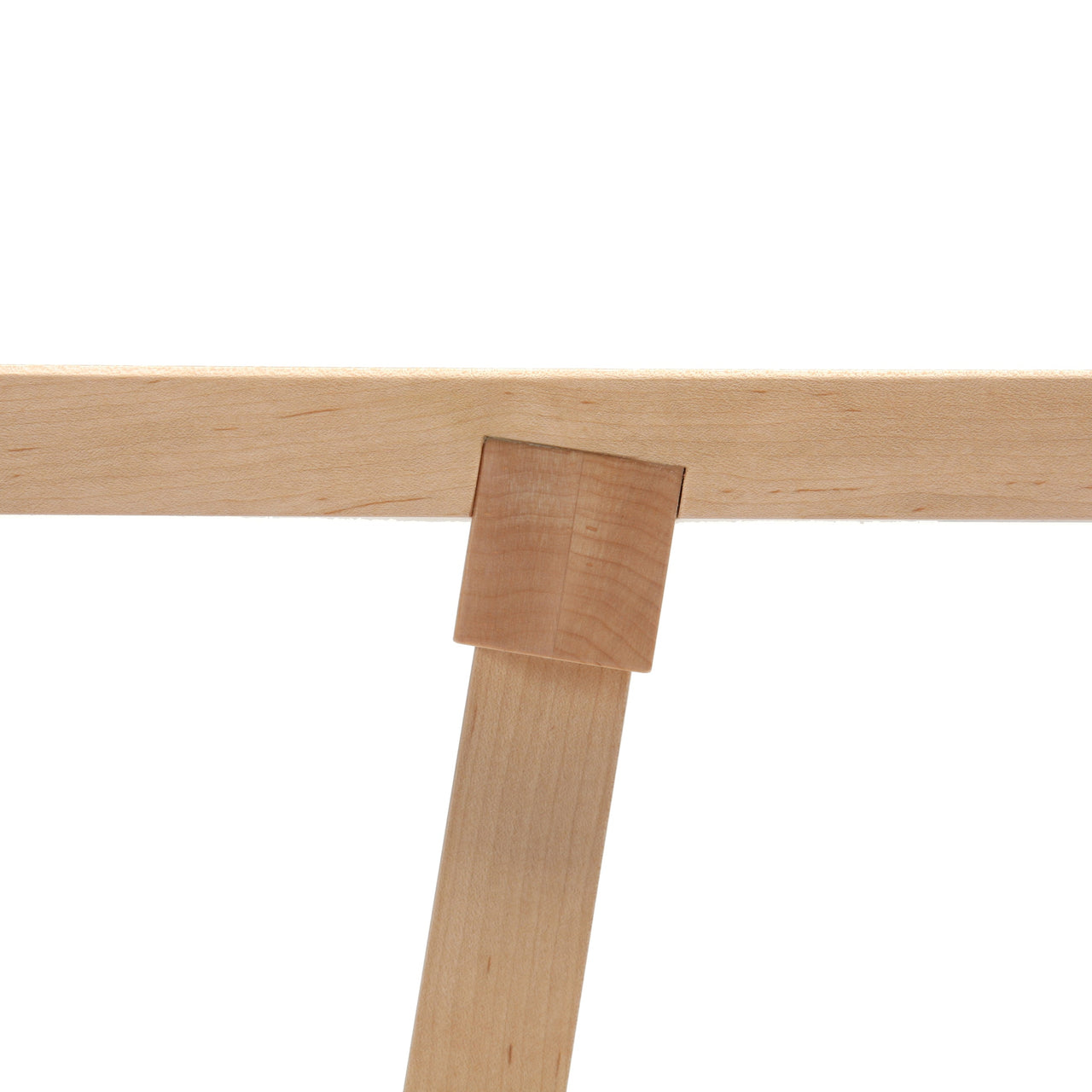
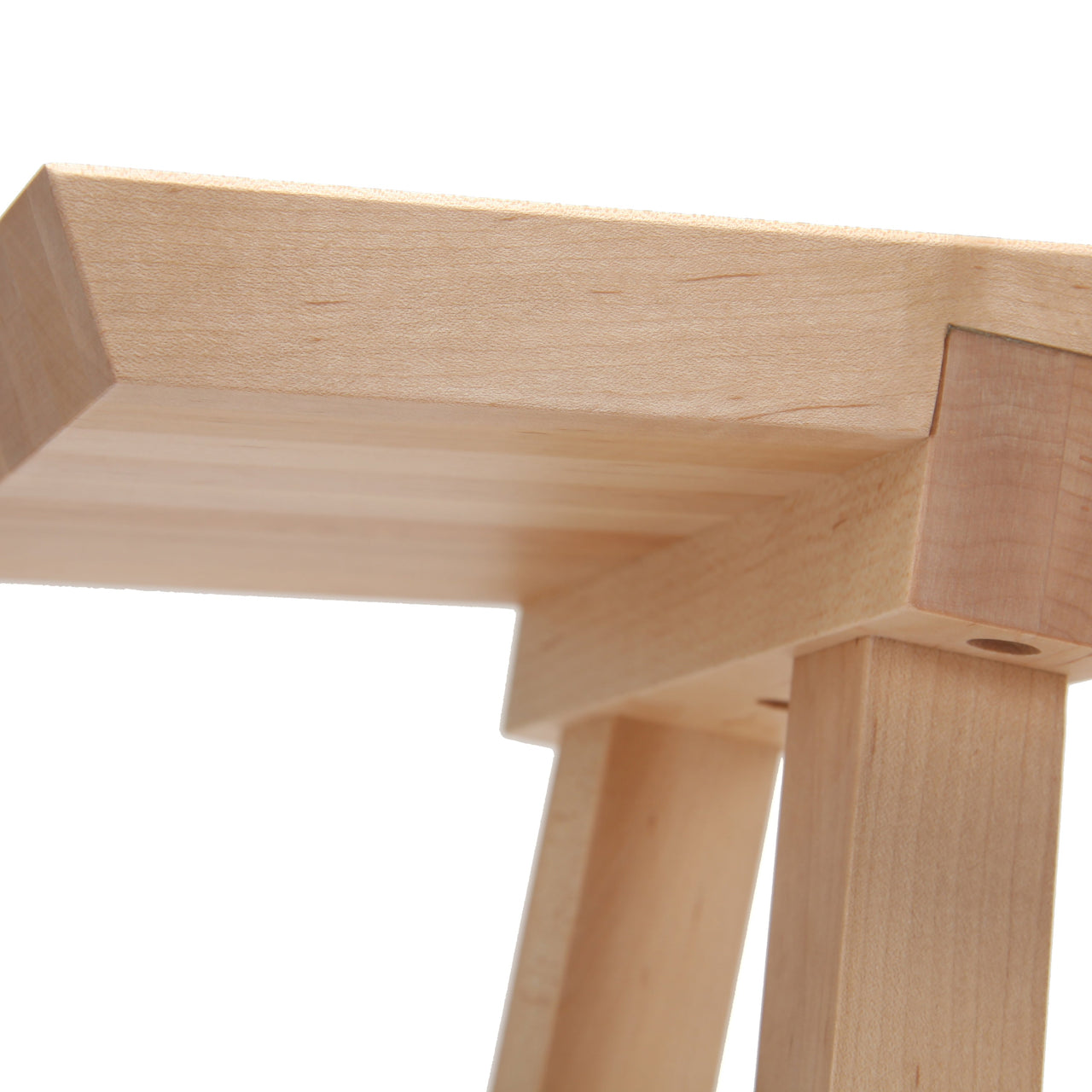
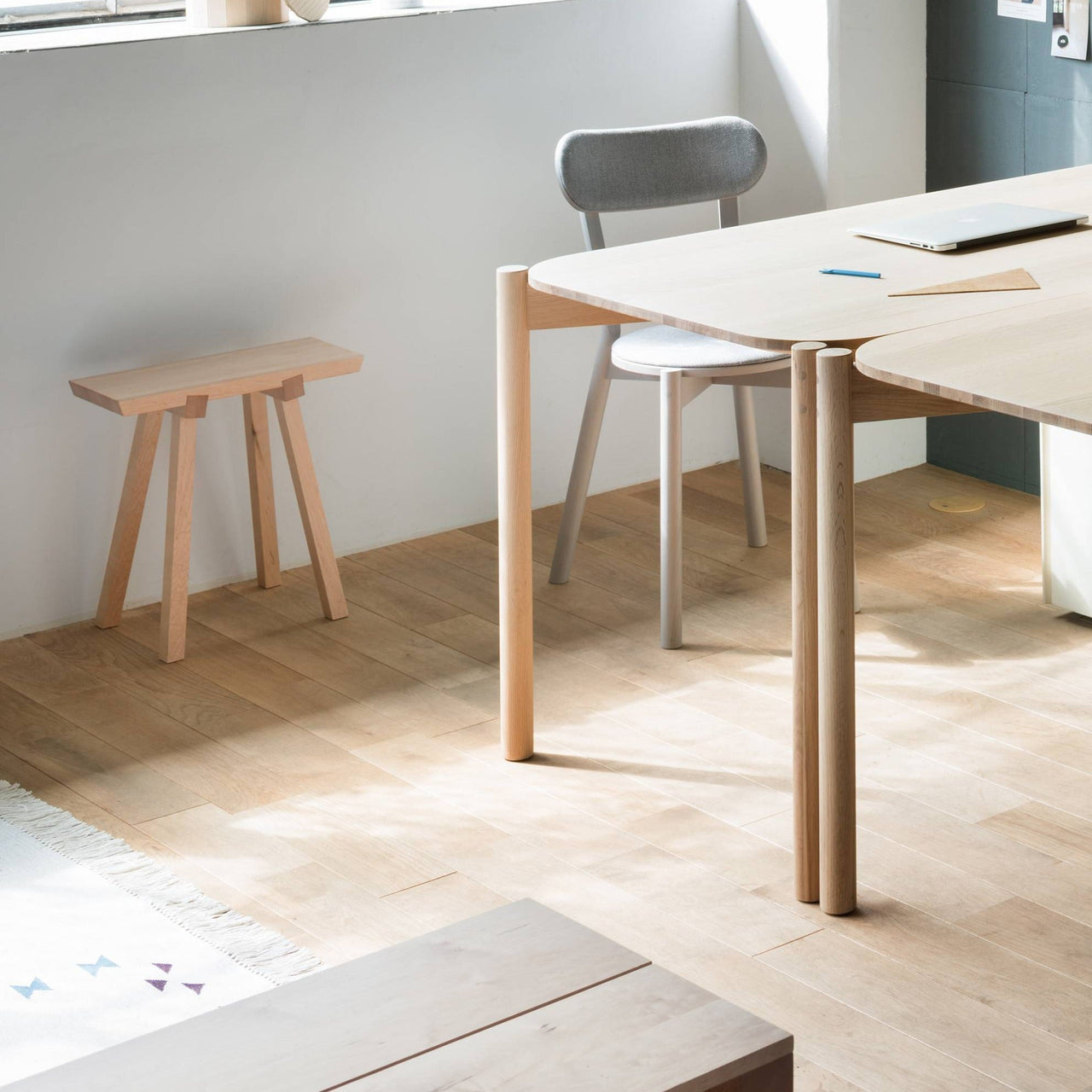
Karimoku New Standard × Satoshi Seto
Torii-S Footstool
Description
A companion piece to its similarly-named chair, the Torii-S Stool from Karimoku New Standard also takes its inspiration from the ceremonial gates at Shinto shrines, an archetype seen across Japan. The harmonious lines are the very definition of the land's aesthetic heritage yet appear strikingly contemporary in their refined simplicity. The signature detailing of the stool legs, inset into the seat, is based on the traditional Japanese joinery method shikuchi, reflecting Karimoku's vaunted command of exacting woodworking technique.
Specifications
Size
17.5" h x 17.75" w x 10.25" d (44x45x26cm)
Material
Itaya maple
Brand
Karimoku New Standard
It has always been about the wood. Shohei Kato opened a small woodworking shop in 1940 from a longstanding timber firm he acquired in Kariya. The first letters of the town name combined with “moku,” as in “mokuzai” ( “wood”) provided the brand name. Furniture followed within 2 decades, along with several brands under the Karimoku umbrella. Then in 2009, with his grandson Hiroshi Kato as vice president, the Karimoku New Standard branch launched to develop works with international designers in the modern design arena.
The star roster includes Swedish studio TAF, the Swiss team Big-Game and Dutch duo Scholten & Baijings. Among them is David Glaettli, who also serves as KNS brand creative director and dubbed its credo as “high-tech and high-touch.” The highly skilled Japanese carpentry and hand-applied painting that are a part of the parent company heritage are integral to KNS. It also looks forward, revitalizing native forests by targeting undervalued, sustainably grown hardwoods. Advanced technologies have elevated the low-diameter chestnut, maple and oak trees, once turned into wood chips for paper pulp, into something of lasting beauty. The aim, notes Hiroshi, is “furniture that will be used and loved for more than 100 years.”






